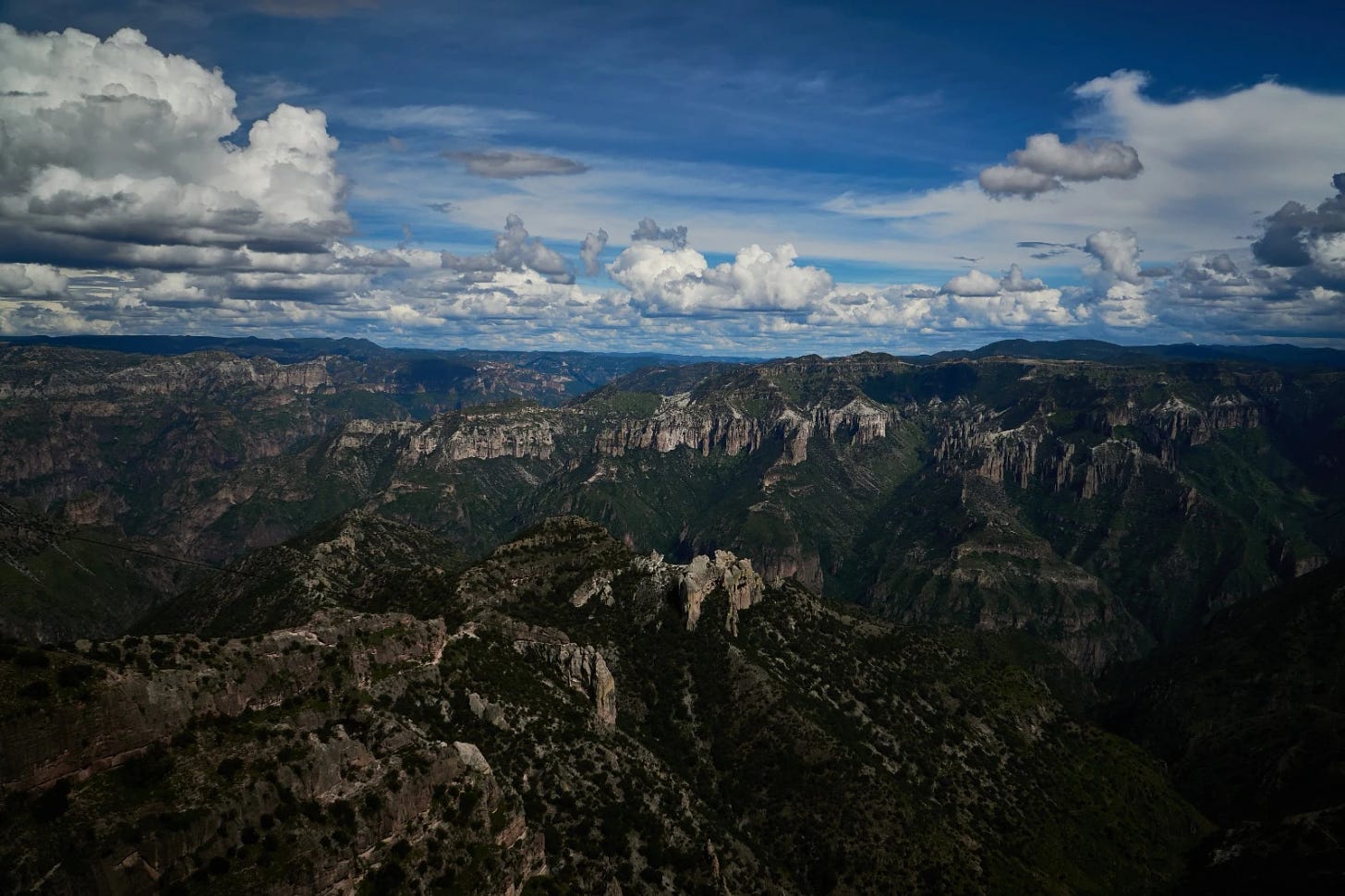The Sinaloa Cartel Is Controlling Water in Northern Mexico
“Water is now a valuable asset for us, and as it becomes more scarce, the more we will fight to make sure we have enough,” a cartel operative told saga.
URIQUE, Mexico — Deep inside a canyon in the mountains of Chihuahua, Mexico—a place that’s accessible only by mule or on foot—locals haven’t seen this river full for over eight years. And now, the waterway is the property of the Sinaloa Cartel.
“Here, everything has an owner,” said a mid-level Sinaloa Cartel commander for the region, who asked to be called “El Señor.” “Rivers, creeks, lakes… everything, and especially water.”
During what Mexican authorities called the worst drought in the country’s history last year, thousands of local farmers—many of them Indigenous Raramuri people—lost their crops. But the Sinaloa Cartel saw a new business opportunity: the control and distribution of water.
Using water trucks, pipelines, and an army of lookouts, the cartel is siphoning water from lakes, rivers, and creeks in the mountains of the northern state of Chihuahua. The business model is twofold: The cartel wants to keep its own weed and poppy fields irrigated, and it wants to be the broker that supplies water to farmers, hotels, and other local businesses that have been left dry.
“Water is now a valuable asset for us, and as it becomes more scarce, the more we will fight to make sure we have enough,” El Señor said.
Water is the new black market throughout northern Mexico as climate change is keeping the seasonal rain away.




